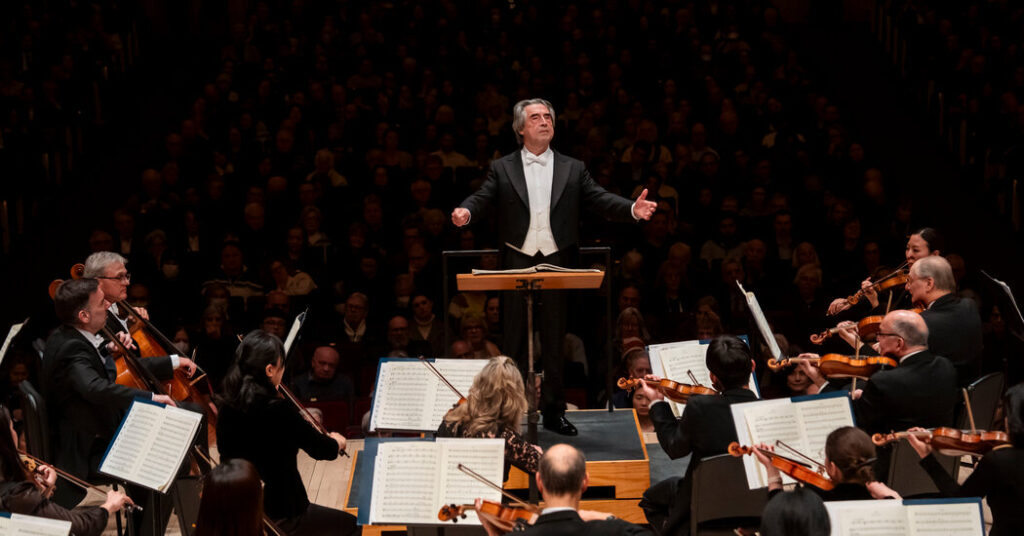The Tchaikovsky showcased the formidable discipline of the Chicago sound under Muti, with the orchestra’s famous brass section gleaming in the fearsome fanfares that function as the fate motif anchoring the symphony. Here, too, Muti’s attention often went to subsidiary voices. In a transitional moment during the first movement, he brought the chugging rhythmic figures in the violins to the fore just as the winds seized and stretched the melody, so that the tension between forward momentum and a blindsiding change of mood came through as a physical tussle.
In the Andantino, the wistful melody that is passed around different sections gained emotional depth through the coloristic details Muti brought out in the accompaniment. By the time the bassoonist Keith Buncke played it one final time the noble resignation he brought to it was reinforced, heartbreakingly, by the unusually prominent, heaving sighs in the violins.
It was easy to project a sense of retrospective melancholy onto this concert at a moment when Muti, 83, is leaving the orchestra in the hands of his 29-year-old wunderkind successor. As an encore, Muti offered a tender rendition of Giuseppe Martucci’s “Notturno,” a rueful, openhearted reverie shimmering with echoes of Mahler.
In remarks introducing the encore, Muti recalled a commemorative concert planned for Martucci in Bologna in 1931, which was canceled at the last minute when the conductor, Arturo Toscanini, refused repeated demands, accompanied with threats and physical violence, that he also play the Fascist anthem.
“Dictators were never interested in music,” Muti said, drawing knowing laughter from the capacity crowd at Carnegie, “because culture is the most effective weapon.”
Chicago Symphony Orchestra
Performed on Tuesday at Carnegie Hall, Manhattan.


